Respect
Respect is an artwork by Séfora Camazano. It is an original Giglée Fine Art print on a 100% cotton acid-free canvas with dimensions of 201 x 200,5 cm. Dating from the year 2023, it is part of the “Female Portraits: Looking back to the Past” collection.
The canvas captures a touching portrait of two remarkable women: Lourdes and Rosa. United in the image, both figures emerge dressed elegantly in white garments.
Lourdes stands out with her hat adorned with flowers and a veil that partially conceals her face. With one arm raised, she holds the hat, while in the other hand, she carries an open white umbrella, pointing it towards the ground.
Rosa, on the right side of the composition, has her hair gathered up, and her face displays a serene expression. Her hat, which she delicately holds, is also decorated with flowers. From her attire, a long and diaphanous veil flows, not quite touching the ground, giving an air of mystery.
Both women appear to be immersed in an underwater setting, walking on the sand of the ocean floor. The movement of their veils enhances the sensation of being submerged in the water. Viewing this artwork from this perspective places them in an environment where breathing seems impossible.
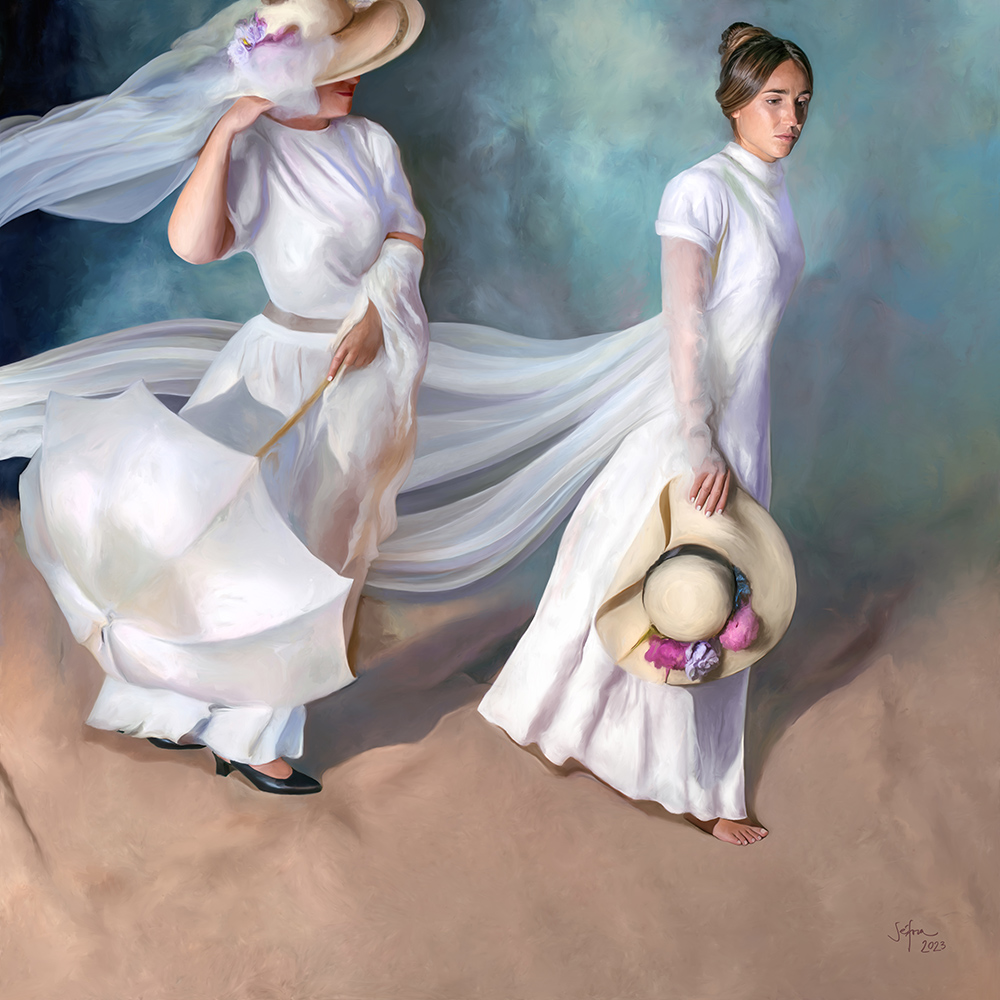
Lourdes, a 55-year-old Spanish woman, went through a painful cycle of verbal and psychological abuse at the hands of her husband over the course of their 32-year marriage. Thanks to her husband’s successful career and solid financial situation, Lourdes left her job to devote herself entirely to building a family. During this union, two children were born. Although they appeared to be an enviable couple, enjoying luxurious trips and gifts, no one was aware of the tumultuous reality hidden behind the doors of their home.
With resignation, Lourdes endured multiple abuses, holding onto the hope that her husband would change at some point, as he used to promise after each heated argument. Lourdes’ husband was reluctant to accept opinions different from his own, considering them a form of “disrespect,” which often led to disagreements.
As time went on, this persistent situation eroded her perception, leading her to normalize an environment that should have been unacceptable. However, the day came when the abuse escalated to physical violence, along with insults and death threats. It was this dark episode that finally prompted Lourdes to take the decisive step of seeking a divorce.
Rosa, also Spanish, suffered sexual abuse from her maternal grandfather since she was only 4 years old. This harsh situation caused her nightmares, anxiety problems, somatizations, and stress. The most difficult part was when she discovered through other relatives that her mother, her aunt, and her grandmother had also suffered the same abuse from the same man, and that her mother, knowing about it, did not protect her. The helplessness she felt from her family was the most challenging aspect to overcome psychologically.
When she was 11 years old, she talked about the abuse for the first time, and her parents decided to remove the abuser from the family. At the age of 19, she found the courage to report him, going through two years of very difficult legal proceedings.
Today, Rosa has overcome her past, but it took her ten years of therapy to deal with feelings of guilt, shame, generalized anxiety disorder, and post-traumatic stress disorder due to everything she endured within her own family. Of all this, the only thing she feels proud of is turning her trauma into her strength. Today, she is a psychologist and works with people who have gone through the same situation or other forms of violence directed towards women.
“Respect” was the pillar that Lourdes and Rosa tenaciously fought for, going through rigorous legal processes to obtain it. Their victory materialized when they made the bold decision to redefine their narratives, becoming a living testament that it is possible to overcome the wounds of the past and build a future filled with fulfillment and satisfaction.
Artwork production
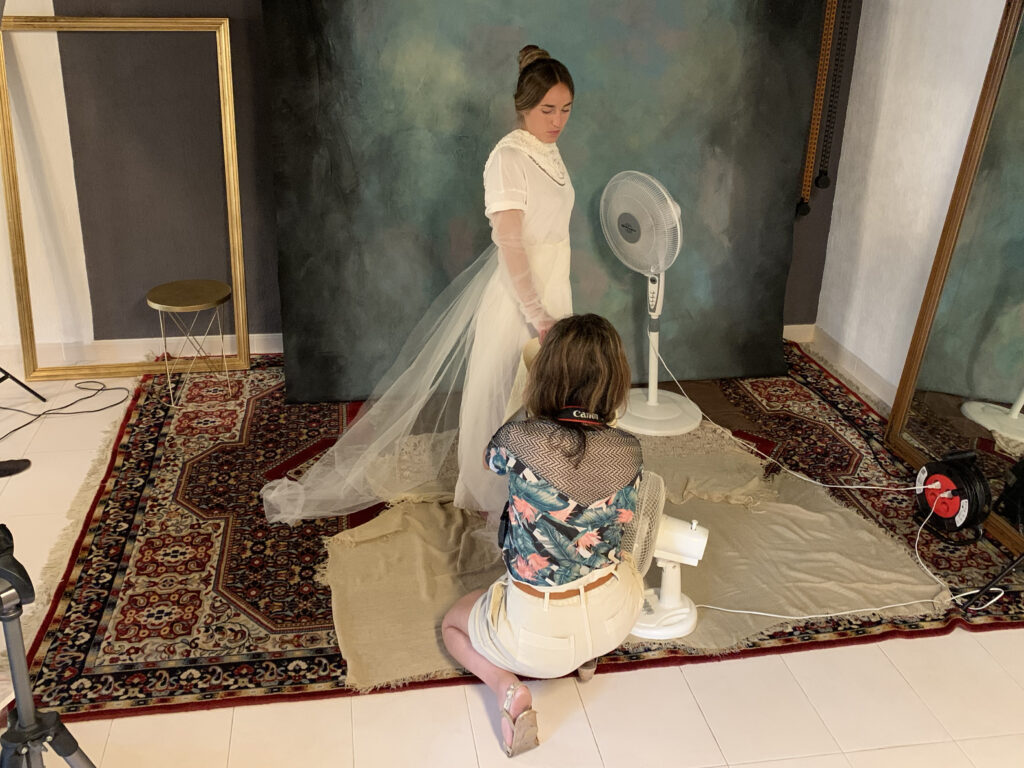
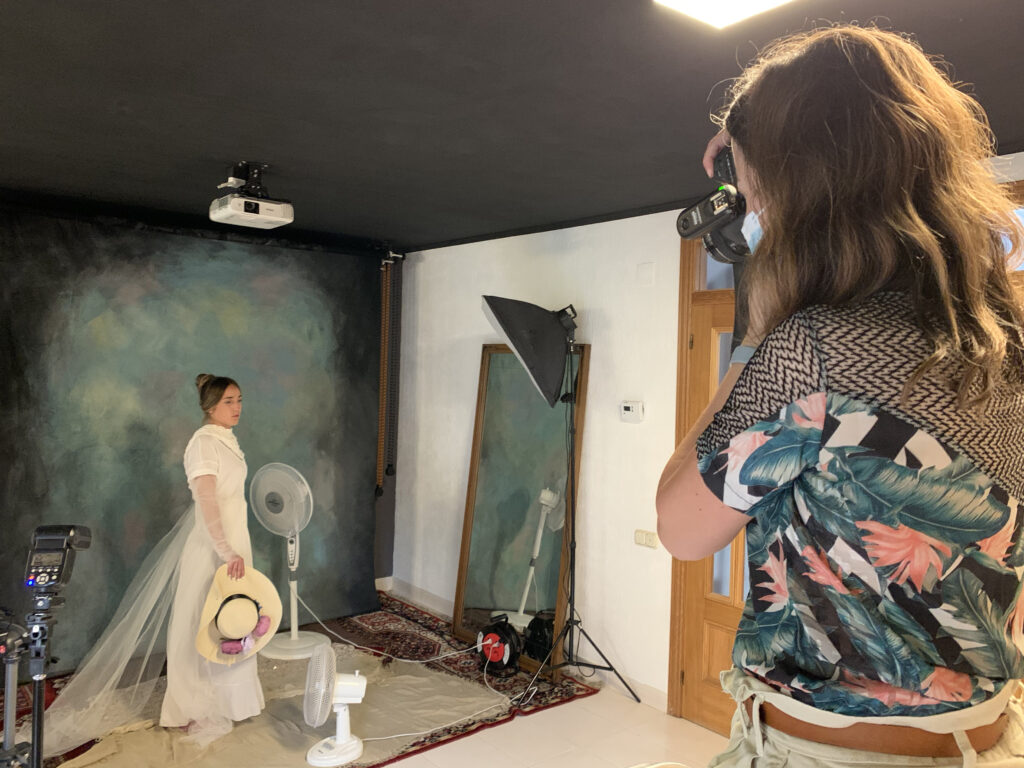


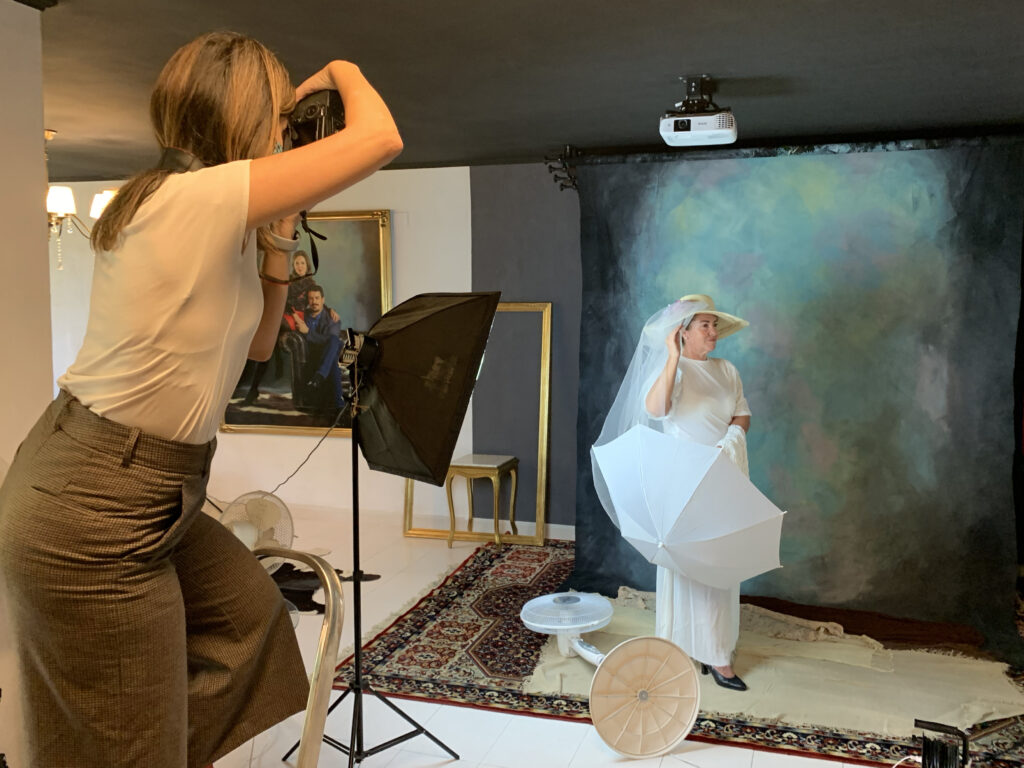
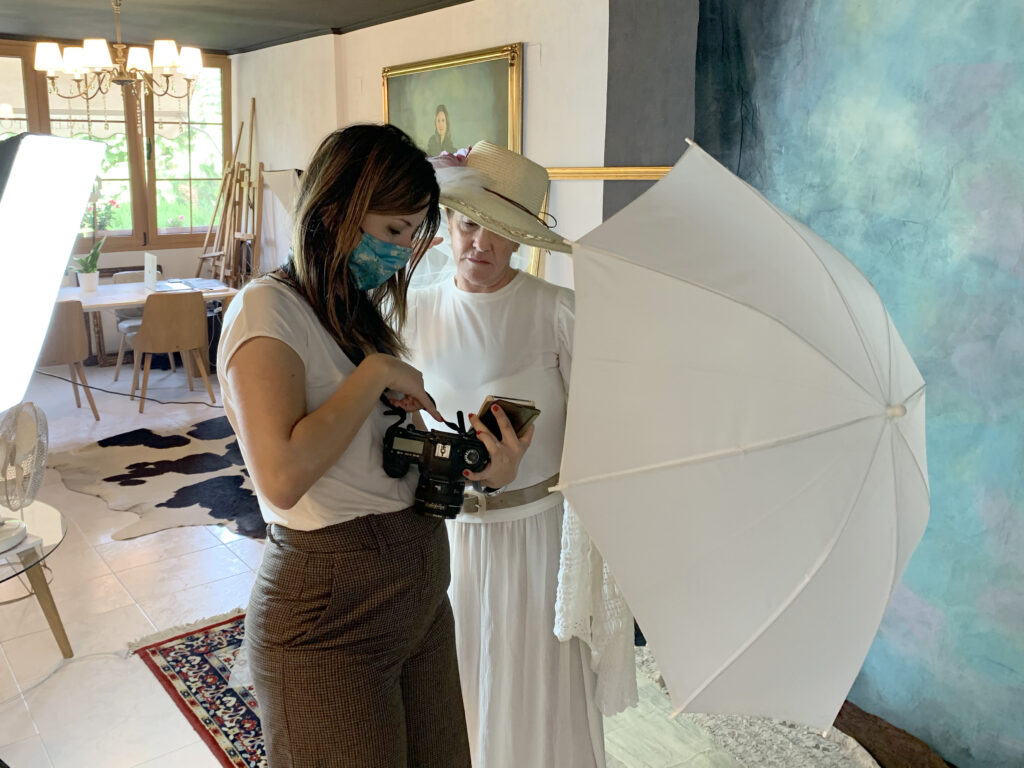
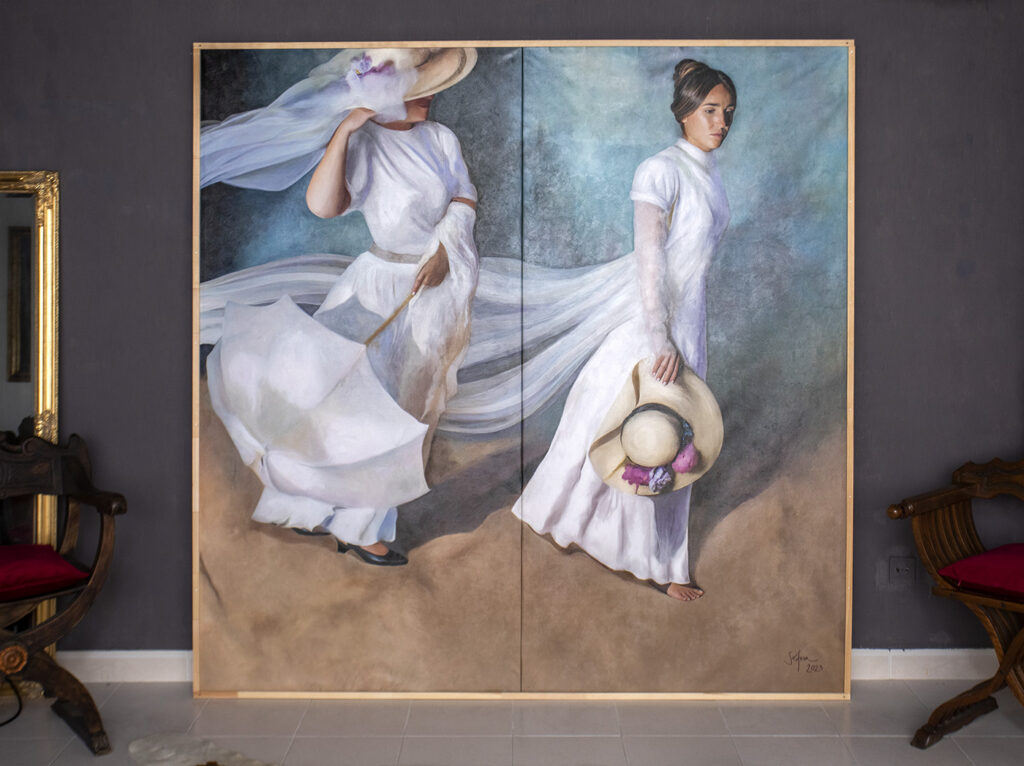
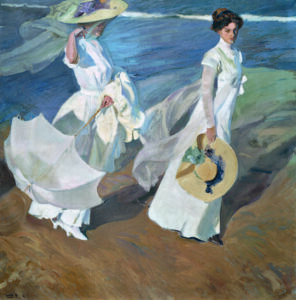
Respect was inspired on the artwork Walk on the beach (1909), by Joaquín Sorolla.


